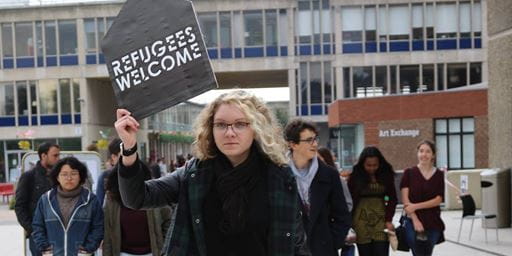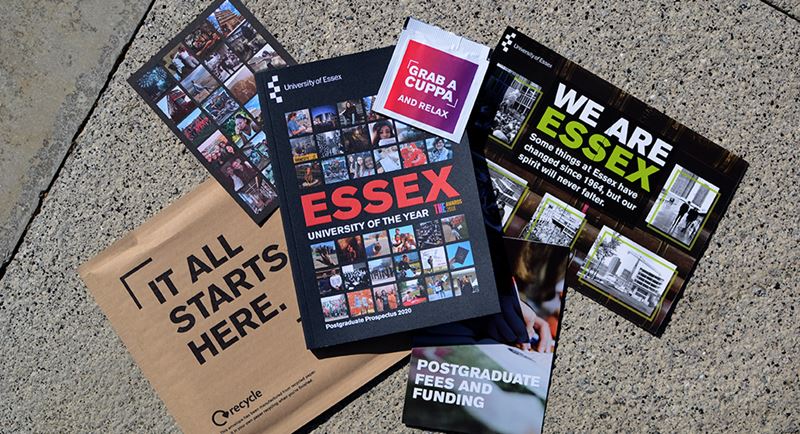Course structure
Our research-led teaching is continually evolving to address the latest challenges and breakthroughs in the field. The following modules are based on the current course structure and may change in response to new curriculum developments and innovation.
Our students now have the opportunity to opt for one of four distinct pathways. This includes a generic pathway in which students can choose optional modules spanning across many academic disciplines. For those students who have a more specific interest in specialising in a distinct area of human rights, we have created the following pathways: human rights, global diversity and global challenges; human rights, social justice and social change; and finally, human rights, gender, race and identity.
1. Generic pathway
This pathway allows our students the opportunity to acquire a broad, generalist education in human rights without specialising on a specific set of themes and issues. The content of the generic pathway encompasses the vast range of optional modules available across all of the other MA Theory and Practice of Human Rights pathways.
2. Human Rights, Global Diversity and Global Challenges
This pathway offers students the opportunity to engage with a comprehensive set of normative and institutional challenges surrounding the complex relationship between the promotion of universal human rights and respecting regional, national and cultural differences. It also offers an opportunity to engage with principal regional approaches to international human rights law and to contextualise these within a global framework which continues to be deeply influenced by a variety of complex power relationships between, for example, the Global North and Global South. This pathway is great for students who wish to develop human rights careers in a changing global landscape, in which new challenges are emerging.
3. Human Rights, Social Justice & Social Change
Human rights are widely perceived as an integral component of wider attempts to promote social justice. To this extent, the complex relationship between normative theories of justice and key political, legal, social and economic institutions ought to be a core focal point for the study of human rights. Similarly, there are many sources of and factors within a broad array of forms of continuing injustice. It is essential that these factors are effectively understood and engaged with. Finally, all political, social legal and economic forms of life are subject to significant forms of change and alteration, which often have a profound impact upon our understanding and application of human rights. This pathway provides an opportunity for students to engage with this crucial area of academic and practical interest. This pathway is for students who are interested in political/social theory, focused upon combatting socio-economic injustices and inequalities, and those with more overtly practical motivations towards learning how to deploy human rights in the current global order.
4. Human Rights, Gender, Race & Identity
This pathway will examine the role of human rights in recognising, protecting and advocating for marginalised groups or identities – those at the social fringes who find it difficult access sites of power - the economy, politics, the enjoyment of rights & social capital on account of group membership. Linking to theories of social justice and social change, the pathway will introduce students to different paradigms from a range of disciplines to enable them to conceptualise ways (both theoretical and practical) to redress social imbalances between dominant and marginal groups (for example, how to address structural and institutional racism, how to address the economic, social, institutional and cultural effects of patriarchy, or how to address extreme income and wealth inequalities between groups), leading to fairer and more equitable societies.
5. Human Rights and the Arts
We offer the only MA in the UK that combines arts and human rights, that doesn't require a Law undergraduate degree
This pathway will provide students with an interdisciplinary introduction to and engagement with the relationship between human rights and the arts. Separate sessions will focus upon the specific contributions which a carefully selected range of artistic forms and genres have engaged with and contributed to the global defence of human rights. The pathway is taught by and will draw upon the expertise of colleagues in the areas of contemporary art, cultural studies, dance, literature, mass media and photography. It will enable students to situate key debates surrounding the significance and importance of art within wider human rights challenges. Key topics will include, photography and human rights, the art of protest movements and Holocaust and art restitution.
We understand that deciding where and what to study is a very important decision for you. We'll make all reasonable efforts to provide you with the courses, services and facilities as described on our website and in line with your contract with us. However, if we need to make material changes, for example due to significant disruption, we'll let our applicants and students know as soon as possible.










